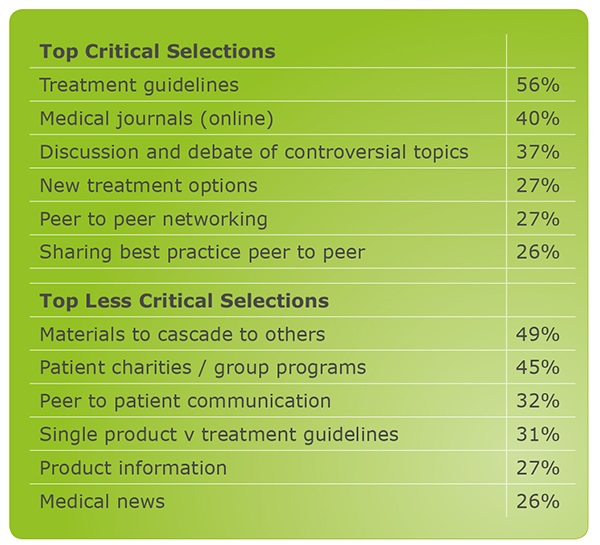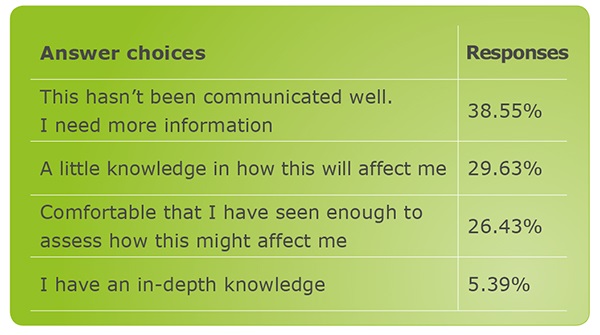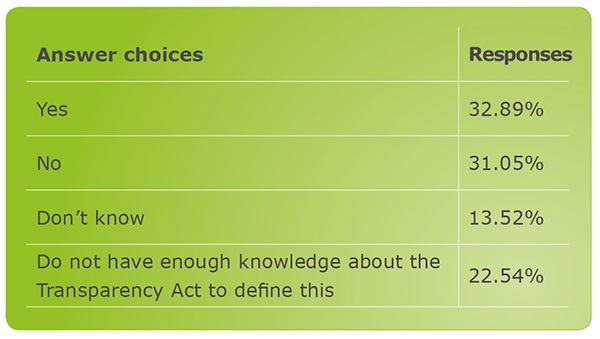Healthcare meetings: focus on the patient

Healthcare meetings have long been important fixtures for pharma companies, healthcare professionals (HCPs) and medical societies to connect with each other in person and learn the latest developments in their therapeutic area. Evidence presented to delegates at the December 2014 Healthcare Meetings Forum suggests they still are – but the regulatory and economic landscape within which such meetings take place is changing almost beyond recognition.
These changes stem, in part, from pressure from the uncertainty surrounding the effects of mandatory disclosure of what pharma companies pay healthcare professionals, and partly from the fact that the content from such meetings is now being widely disseminated digitally. Now, other forces within healthcare – such as the rise in influence of the informed patient, the importance of patient outcomes, the need for greater understanding between growing numbers of healthcare stakeholders – are forging a more evolutionary path for this one real networking opportunity on the healthcare landscape.
The Healthcare Meetings Forum explored all these dynamics in the context of how medical meetings can improve patient outcomes. Delegates heard about the challenges of complying with new transparency requirements. They also heard about the rise in digital dissemination of information from healthcare meetings and the kinds of information that are most valuable in affecting patient outcomes. Central to everything was the rising importance of patient centricity and the role of the informed patient as healthcare professionals continue to lose ground as the sole authority on treatment decisions.
In terms of procurement, delegates learned of various changes being introduced as agencies, hotel groups and other parties work to help pharma fulfil the complex compliance obligations in how they work with HCPs and create real supplier partnerships. They heard the results of a survey of more than 750 HCP respondents from various countries, therapeutic areas and disciplines, which suggests while the vast majority appreciate meetings they also felt they would be accessing most of their information about new products and medical treatments online by 2017.
"The promotional meeting is not dead, in short, but changing to meet higher scientific expectations and facilitate more effective engagement with key HCPs"
In terms of the constituent stakeholders, the meeting heard that:
Pharma companies are pioneering new ways to use meetings not just for the benefit of the prescribers, nor as one isolated mode of communication. Rather, meetings are increasingly seen as a channel to reach out to informed patients and also to deepen engagement with doctors within the context of a broader multi-channel communication strategy. The promotional meeting is not dead, in short, but changing to meet higher scientific expectations and facilitate more effective engagement with key HCPs.
Medical societies are doing everything they can to focus on quality rather than quantity, to include greater input from patient advocates and to work to benefit all stakeholders rather than simply doctors. There would also be new styles of engagement, moving away from lecture hall presentations to provide more discussion forums, panel sessions and audience participation.
HCPs go to meetings not just for the information but to further their careers via research and to meet other stakeholders. Those who took part in the survey felt the most valuable sources of information, for both professional practice and patient outcomes, was that which was evidence-based or peer-reviewed, as shown in Figure 1 below.
Figure 1: What type of information is valuable in positively influencing patient outcomes?

Patient representatives are keen to attend but they should have certain qualifications to ensure maximum value from their participation. These are that advocates should: actively support research; have a constituency with which to share knowledge gained from the meeting; are able to communicate that knowledge; present an advocacy poster; demonstrate key knowledge points acquired during the meeting; submit an article three months after the completion of the programme.
The big question about the effect of transparency on the meetings landscape was considered too early to call. Some indications come from the Healthcare Meetings survey. Figure 2 shows how more than a third of respondent HCPs are still largely in the dark about what the transparency directive entails despite its imminent introduction in Europe next year. And Figure 3 suggests just under a third might reconsider a decision to attend a meeting in the light of the transparency directive.
Figure 2: What is your understanding of "the transparency disclosure directive between the transfer of items of value between commercial companies and HCPs"?

Figure 3: Might the transparency disclosure directive affect your decision to attend a meeting involving pharma companies?

The future for medical meetings is clearly changing as patients become more central in terms of both planning and content, as payments to HCPs become transparent and as information is now disseminated digitally. But from everything that was heard at the Healthcare Meetings Forum, it is equally clear that medical meetings are here to stay and, it seems, with improved quality.
To purchase a copy of the official white paper from the Healthcare Meetings Forum 2014 please email hello@healthcaremeetingsforum.com
About the author:
Jacky Law has been writing about pharmaceuticals since joining Scrip Magazine in 1998, before becoming a regular columnist for Pharmaceutical Executive. From 2010 to 2013 she wrote industry reports for FirstWord.
At pharmaphorum Jacky leads the production of unique and insightful research reports and features covering the key issues impacting the global pharmaceutical industry.
You can follow her on Twitter here.
Have your say: Are medical meetings heading in the right direction?
Read more from Jacky Law:










